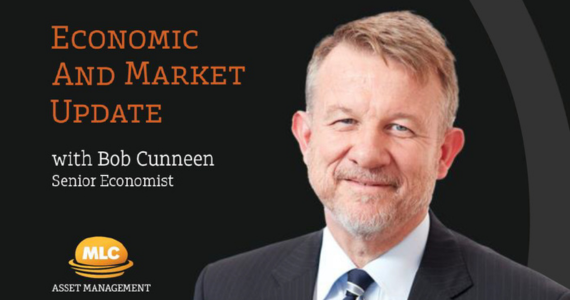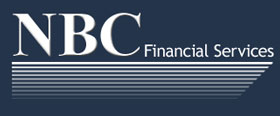Key events in July 2024
- Global share prices made modest gains in July given hopes that lower interest rates are coming in Europe and the US later this year.
- US shares made record highs in July given continued ‘Artificial Intelligence’ (AI) enthusiasm and encouraging signals from the US central bank that they are willing to cut interest rates soon. US annual inflation for June came in at 3% which is the lowest result since March 2021. This generated broad share market gains that included smaller stocks which had previously underperformed the technology sector. US economic activity showed signs of cooling with moderate job gains and softer business surveys.
- European share prices made mild gains despite concerns over France’s fragmented parliamentary election results and softer business surveys.
- Chinese share markets fell with continued concerns over subdued consumer spending and a weak property market. The Chinese central bank did manage to cut corporate and housing lending rates by 0.1% in July, but this was viewed as only symbolic gestures of support rather than major stimulus. Japanese shares also declined as the central bank surprised by raising interest rates by 0.15% to 0.25%.
- Australian shares made strong gains in July. The consumer discretionary, real estate and financial sector shares led the gains with hopes that the Reserve Bank of Australia (RBA) would not raise interest rates any further. Australia’s annual consumer inflation came in at 3.8% in the year to June. While this shows stubborn inflation pressures, Australian share prices gained comfort that the inflation result was similar to the RBA’s forecasts.
- Australia’s economy is a mix of mild positives and sharp negatives. Solid employment gains continue to be recorded, which is welcome. However, this is being countered by falling new housing approvals and weak retail spending. Hence the ‘cost of living’ crisis continues to trouble the Australian consumer.

Asset class summary
Asset class returns in Australian dollars – periods to 31 July 2024
| CYTD % | 1 month % | 3 months % | 1 year pa % | 3 years pa % | 5 years pa % | 10 years pa % | |
| Australian shares | 8.5 | 4.1 | 6.0 | 13.3 | 7.1 | 7.5 | 8.0 |
| Global shares (hedged) | 14.2 | 1.2 | 7.4 | 17.2 | 5.9 | 10.1 | 9.6 |
| Global shares (unhedged) | 18.2 | 3.9 | 7.5 | 20.8 | 10.0 | 12.3 | 12.7 |
| Emerging markets (unhedged) | 12.7 | 2.6 | 4.3 | 9.7 | 1.2 | 4.5 | 6.3 |
| Australian property securities | 17.0 | 6.8 | 9.1 | 27.2 | 7.9 | 5.5 | 9.3 |
| Global property securities (hedged) | 3.3 | 5.5 | 9.2 | 7.0 | -3.6 | -0.3 | 3.5 |
| Global listed infrastructure (hedged) | 10.4 | 6.4 | 8.5 | 9.4 | 3.8 | 3.7 | 6.6 |
| Australian bonds | 1.7 | 1.5 | 2.7 | 4.7 | -2.2 | -0.5 | 2.3 |
| Global bonds (hedged) | 1.4 | 1.9 | 3.5 | 4.7 | -2.5 | -0.5 | 2.2 |
| Global high yield bonds (hedged) | 3.3 | 1.6 | 3.5 | 8.6 | 0.5 | 2.7 | 4.2 |
| Australian inflation-linked bonds | 1.4 | 1.4 | 1.7 | 5.0 | 1.5 | 2.2 | 2.8 |
| Cash | 2.6 | 0.4 | 1.1 | 4.4 | 2.6 | 1.7 | 1.9 |
| AUD/USD | -4.3 | -2.2 | 0.6 | -3.1 | -3.9 | -1.1 | -3.5 |
Past performance is not a reliable indicator of future performance. Sources: Australian shares – S&P/ASX 300 Total Return Index; Global shares (hedged) – MSCI All Countries World (A$ hedged, Net); Global shares (unhedged) – MSCI All Countries World in A$ (Net); Emerging markets – MSCI Emerging Markets in A$ (Net); Australian property securities – S&P/ASX 300 A-REIT Accumulation Index; Global property securities – FTSE EPRA/NAREIT Developed (A$ hedged, Net); Global listed infrastructure – FTSE Global Core Infrastructure 50/50 (Hedged $A); Australian bonds – Bloomberg AusBond Composite 0+ Yr Index; Global bonds (A$ hedged) – Barclays Global Aggregate (A$ hedged, Gross); Global high yield bonds (A$ hedged) – Barclays US High Yield Ba/B Cash Pay x Financials ($A Hedged); Australian inflation-linked bonds – Bloomberg AusBond Inflation Government 0+ Yr Index; Cash – Bloomberg AusBond Bank Bill Index; AUD/USD – WM/Reuters Daily (4 pm GMT).
Key events in global markets over the last three months to July
Global shares have achieved strong gains over recent months despite concerns over the conflicts in the Middle East and Ukraine as well as stubborn inflation. Optimism on AI is the key driver for higher global share prices.
Global shares (hedged) recorded a very strong 7.4% return for the past three months. A mild fall in the Australian dollar did improve the global shares (unhedged) returns to a slightly better 7.5% for the three months to July.
Wall Street’s benchmark S&P 500 Index made historic highs in the three months to July and delivered an exceptionally strong 9.9%, in local currency terms, with the exuberant optimism on AI and technology shares.
European shares have delivered a strong 4.1% return in local currency terms. Investors had some solace in milder inflation and the European Central Bank (ECB) cutting interest rates in June. However political risks with the Russia-Ukraine War, France’s political turmoil and UK General Election in July have cast a shadow.
Asian share markets have delivered mixed performances. Chinese shares have disappointed with the China MSCI Index delivering a negative -1% return, in local currency terms. Weak property markets and subdued consumer spending continue to trouble the Chinese economy. Japanese share markets delivered a mild return with a 2.0% gain, in local currency terms, for the quarter as concerns over higher interest rate settings by the Japanese central bank is starting to weigh.
Global bonds (hedged) posted a strong 3.5% quarterly return. Bond investors were comforted by lower inflation readings in the US and in Europe. Australian bonds posted a milder but still solid 2.7% return for the quarter largely on the back of lower global inflation as well as subdued Australian economic activity results.
Key events in Australia over the last three months to July
Australian shares delivered a very strong quarterly return of 6.0%. Financial sector shares that include the banks led the charge with a 14.5% for the three months to July. The Healthcare (9.0%), Real Estate Investment Trusts (8.5%) and Consumer Staples (7.7%) sectors recorded strong gains on hopes that Australian interest rates will eventually move lower. The Information Technology (6.7%) sector also made strong gains on AI optimism. However, there were some disappointments with the Materials (-6.6%) and Energy (-2.9%) sectors as concerns over China’s growth prospects generated weaker iron ore and oil prices.
Australia’s economy continues to display subdued economic activity with sluggish consumer spending and weak housing construction. The negative impact of high consumer prices, mortgage interest rates and rents continue to squeeze household budgets. There is also concern that inflation is proving high and sticky with the Consumer Price Index increasing by 3.8% in the year to June. This could see the RBA maintain interest rates at current high levels for an extended period.
Global prospects
Global share prices have made strong gains this year despite some headwinds. The enthusiasm for AI and technology have been the key positive contributors. There is also confidence that global economic growth will moderate enough to allow inflation risks to gradually fall. Lower inflation would allow central banks to cut interest rates. However, these exuberant expectations may not be delivered if economic growth disappoints, or if inflation proves more persistent and central bankers more stubborn in lowering interest rates. The continued tragic Russian-Ukraine War and Hamas-Israel conflict are also key threats to global economic stability and investor sentiment.
Accordingly, there are significant inflation, interest rate and political risks that investors should be cautious on. Assessing these complex risks is very challenging. As there are multiple positive and negative outcomes possible this year, investors should maintain a disciplined and diversified strategy.
Important information This communication is provided by MLC Investments Limited (ABN 30 002 641 661, AFSL 230705) (MLC), part of the Insignia Financial Group of companies (comprising Insignia Financial Ltd, ABN 49 100 103 722 and its related bodies corporate) (‘Insignia Financial Group’). An investment with MLC does not represent a deposit or liability of, and is not guaranteed by, the Insignia Financial Group. This information may constitute general advice. It has been prepared without taking account of an investor’s objectives, financial situation or needs and because of that an investor should, before acting on the advice, consider the appropriateness of the advice having regard to their personal objectives, financial situation and needs. Past performance is not a reliable indicator of future performance. Share market returns are all in local currency. Any opinions expressed in this communication constitute our judgement at the time of issue and are subject to change. We believe that the information contained in this communication is correct and that any estimates, opinions, conclusions or recommendations are held or made as at the time of compilation. However, no warranty is made as to their accuracy or reliability (which may change without notice), or other information contained in this communication. This information is directed to and prepared for Australian residents only. MLC may use the services of any member of the Insignia Financial Group where it makes good business sense to do so and will benefit customers. Amounts paid for these services are always negotiated on an arm’s length basis. MLC relies on third parties to provide certain information and is not responsible for its accuracy, nor is MLC liable for any loss arising from a person relying on information provided by third parties. Bloomberg Finance L.P. and its affiliates (collectively, “Bloomberg”) do not approve or endorse any information included in this material and disclaim all liability for any loss or damage of any kind arising out of the use of all or any part of this material. The funds referred to herein is not sponsored, endorsed, or promoted by MSCI, and MSCI bears no liability with respect to any such funds.
